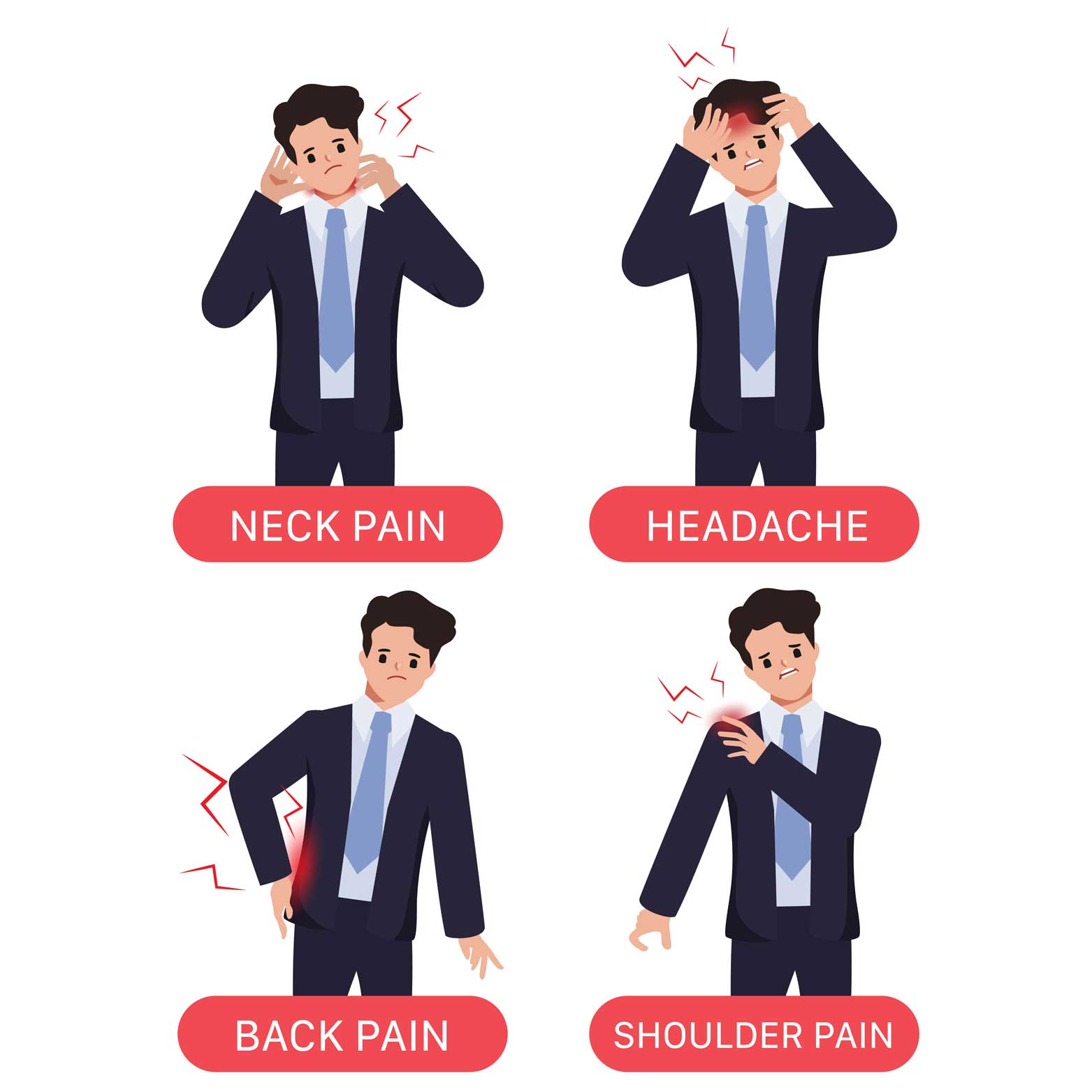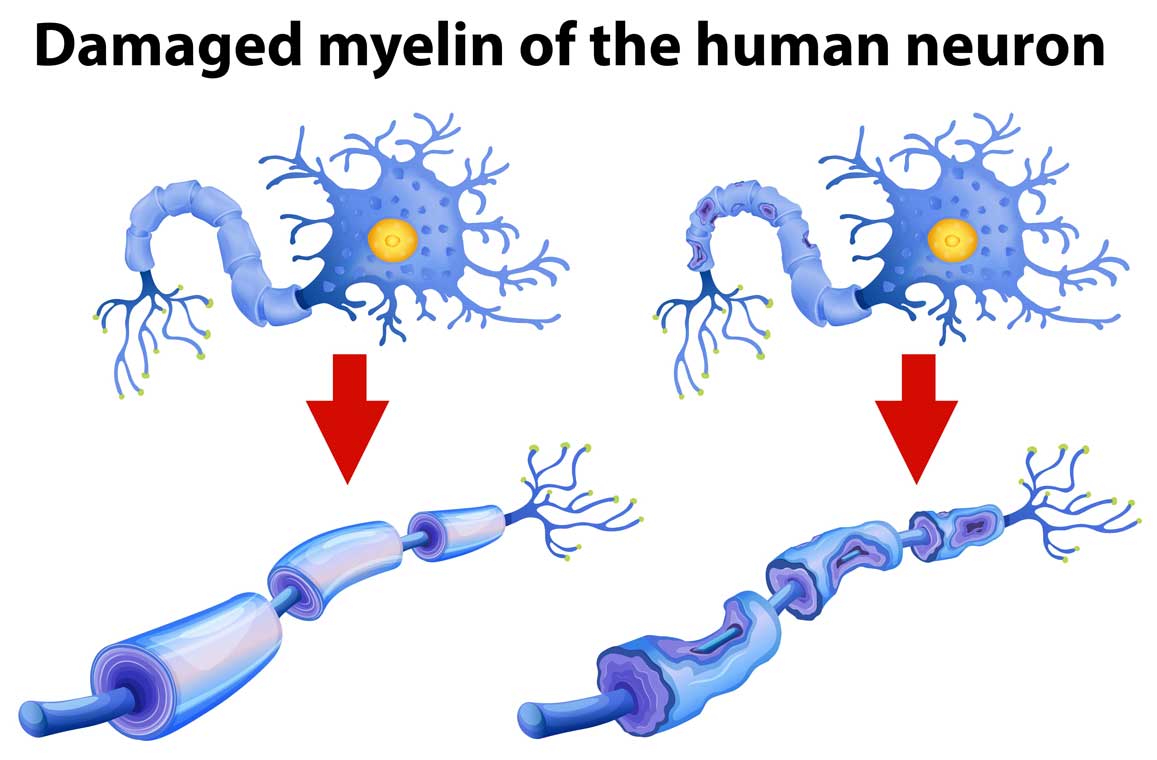There are countless nerves in our body that send signals to the brain including pain signals. It is very important to protect our bodies against external damage. But, this signal does not work properly in people with nerve pain. They may get the sensation of pain but without understanding its cause. Nerve pain, also known as peripheral neuropathy or peripheral neuritis, usually occurs due to some physical damage or disease.

IMPORTANT CAUSES OF NERVE PAIN
- Cancer and other tumors can cause neuropathic pain because the tumors press on the surrounding nerves.
- A diabetic person suffers from nerve pain as high levels of glucose in the blood can damage the nerves.
- If a person suffers from postherpetic neuralgia then a person may suffer from severe nerve pain. Nerves can also be cut, compressed or crushed due to some physical injuries and this can lead to nerve pain.
- Chemotherapy or any other long-term medications can also cause nerve pain.
- HIV patients have a higher inclination of nerve damage which can cause nerve pain
TREATMENT OF NERVE PAIN
Treatment based on the cause
Treatment for nerve pain depends on the age of the patient, the underlying cause, the cost, and the potential side effects. In such cases, a person will have to seek treatment for the underlying disease.
Various treatment options for nerve pain include topical treatments, anticonvulsants, antidepressants, pain killers, electrical stimulation, and in some cases involves the use of surgery.
Medications can help in treating Nerve Pain
- Treatment of nerve pain includes the use of anticonvulsants and tricyclic antidepressants such as Amitriptyline, Nortriptyline, and Desipramine.
- There are also other prescribed antidepressants like venlafaxine and bupropion which are very effective for some people. The doctor may also prescribe Selective Serotonin Reuptake Inhibitors (SSRIs) such as Paroxetine and Citalopram.
- A doctor may prescribe anticonvulsants along with antidepressants to a patient suffering from nerve pain.
- Tricyclic antidepressants can help in dealing with nerve pain caused due to diabetes, HIV, or cancer chemotherapy.
Sometimes topical treatments like creams, gels, lotions, and patches help deal with nerve pain.

Painkillers
- People suffering from severe nerve pain or suffering from nerve pain due to cancer usually opt for opioid painkillers.
- Sometimes, a person may need non-steroidal anti-inflammatory drugs (NSAIDs) like Aleve or Motrin to deal with the nerve pain. can also be given.
- In addition, some treatments such as transcutaneous electric nerve stimulation (TENS) and repetitive transcranial magnetic stimulation (rTMS) (transcutaneous electric nerve stimulation (TENS) and repetitive transcranial magnetic stimulation (rTMS)) reduce pain sent by damaged nerves. Use electrical impulses to block signals.
Injection and surgery
When all other treatments have failed, the doctor may recommend anesthetic injections to ease the pain. The doctor may also recommend surgery.
WHO IS ELIGIBLE FOR THE TREATMENT OF NERVE PAIN?
The person facing these symptoms is eligible for the treatment.
- A person suffering from nerve pain may experience symptoms of pain, pin-and-needle sensation, numbness, and weakness
- A person may feel a burning or tingling and sharp sensation, the main areas where pain can be experienced are the arms, thighs, legs, and face.
- A person may experience poor balance throughout their body and tingling fingers of the feet and slow reflexes

WHO IS NOT ELIGIBLE FOR THE TREATMENT?
A person suffering from pain due to injury and some injury is not eligible for the treatment of nerve pain. Individuals suffering from some chronic disease or certain mental illnesses should consult a doctor before taking any medicine to treat nerve pain.
HOW LONG DOES IT TAKE TO RECOVER?
A person suffering from nerve pain due to nerve damage will take a long time to recover. Some damaged nerves can be repaired surgically and it will take around 3-6 months for that person to recover from it. Although the cause of nerve pain is not severe, a person can recover within a week or two with the help of medicines. However, in some cases, the nerve damage may be irreversible and a person may suffer for their lifetime.
ARE THE RESULTS OF THE TREATMENT PERMANENT?
Nerve pain is usually due to some disease or physical damage. Nerve pain makes a person get the sensation of pain without understanding the cause. This is a complex scenario and the results depend on the condition and the treatment given to the patient. The person will recover completely after successfully dealing with the disease. A person suffering from nerve pain due to nerve damage finds it difficult to recover completely.
WHAT ARE THE PREVENTIVE OPTIONS FOR NERVE PAIN?
- Nerve pain due to diabetes can be managed by following a healthy diet, managing blood glucose levels, exercising lightly, and quitting smoking and drinking.
- A person suffering from nerve pain in his foot can treat it by having regular foot examinations, visiting a podiatrist, and wearing comfortable shoes. One of the easiest and least expensive home remedies for nerve pain is a hot bath.
- Sometimes alternative therapies like meditation, acupuncture, and massaging the affected nerve can give favorable results. Making some changes in lifestyle also helps in dealing with nerve pain.
Gradually increase your activities and find yourself able to play golf, tennis, and swimming. Get back to normalcy with your nerve functioning and get set ready to start moving.
Call us on 972-210-0033 to book an appointment with our specialists, and begin living your life pain-free.
